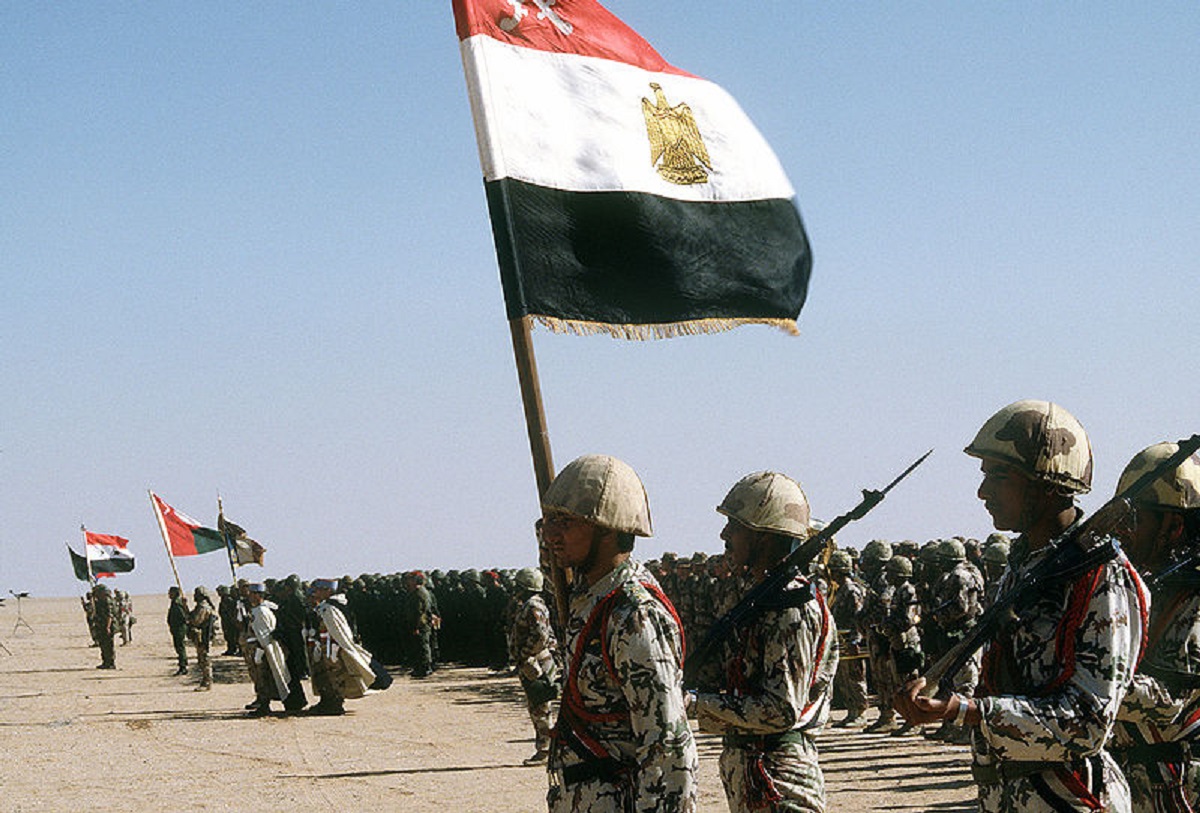An idea that was not only proposed by El-Sisi in 2015 to form an Arab response force to fight terrorism, but also was in his aspirations as he stated in his Strategic Research Report since he was a graduate student at the American War college in 2006. For the first time the idea is picked up by the American administration within Trump’s vision to hand over Middle East security to American allies in the region while creating jobs back home by selling them arms. Some are sceptical about the plausibility of this intended military unity cause although targeted members agree on general concepts like the importance of fighting terror and keeping Iran at bay they disagree on who exactly are the terrorists and what is the highest priority.
Egypt the most populous country in the region and the one with the proven army combat record has a different priority than Saudi Arabia the wealthiest country in the equation. The current government of Egypt sees radical Islamists as Egypt’s first enemy, this can be understood in light of what happened in the 25th of Jan 2011 revolution when the liberal Egyptian youth took to the streets demanding freedom and justice only to end up with a voted brotherhood government claiming to be secularist but moving towards formation of an Islamic Khalifat. Mohamed Mursi issued a constitutional decree immunizing himself as a president from Egyptian judicial oversight. The nature of Egyptian people who were brought up listening to the tunes of Om Kalthoum and Abdel Wahhab and who lived in acceptance with their fellow Egyptian Christians for decades didn’t believe that an anti-Art and Music hate motivated Islamic Khalifat will lead neither to a stable nor a prosperous country. The Egyptian people’s fears where confirmed true after the second popular uprising in 30th of June 2013 overthrowing the brotherhood government when 52 Churches were burned in 24 hours on 14-15 August 2013 as a punishment to the Egyptian Christians for joining the 30th of June revolution. Later, Judges, police officers, military officers were assassinated in different occasions including the Egyptian Attorney General on June 2015 by a car bomb. Egypt’s current government supported by millions who took to the streets in June 2013 and later voted El-Sisi as the hero president see that the emergence of radical Islamist power in the region is an existential threat to the State of Egypt. Egypt will certainly not allow formation of a radical Islamic state in Libya nor in any other country in the region. This view might not be shared by the Saudi Government and allied Gulf States who consider Iran to be their existential threat. This discrepancy in priorities might explain why Donald Trump had to call El-Sisi to reassure his interest in meeting him in Riyadh Summit although El-Sisi had been officially invited by King Salman.
It is obvious that a Middle Eastern military alliance led by Egypt will have different priorities than one led by Saudi Arabia. Egypt does have interest to raise its Military capabilities to form a deterrent to Iran’s ambition in the region but its first and foremost enemy is radical Islamists. The desire of formation of a Middle Eastern military alliance yet leaves a trail of unanswered questions; What will the Middle Eastern military alliance position be on Assad remaining in power? What will be the new formed alliance position on radical Islamist rebels like al Nusra in Syria? What will the position be on brotherhood groups like Fagr Libya in Libya? What would be the stance from the Yemen war? And what is the future of its cooperation with Shiite governorates like the Iraqi government in the fight against terror?


